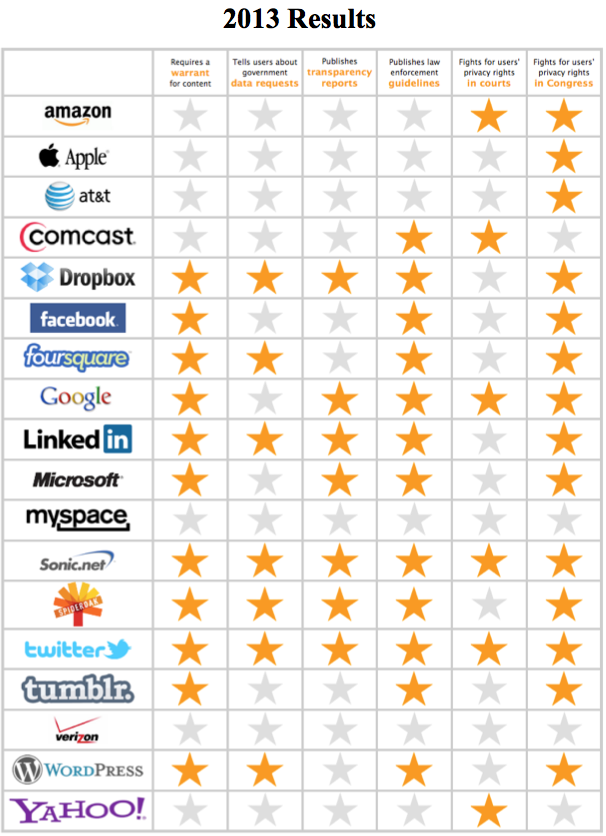Who has your back?

With great storage comes great responsibility
The Electronic Frontier Foundation (EFF) published its third annual report (pdf) on online privacy and transparency on government access to your data. The EFF looked at 18 online companies and their policies across six criteria:
Require a warrant for content of communications
Tell users about government data requests
Publish transparency reports
Publish law enforcement guidelines
Fight for users' privacy rights in courts
Fight for users' privacy in Congress.
Not everyone has to defend a user before a judge, but the EFF wanted to acknowledge those that do. Requiring a warrant is a new category, but warrants aren't a legal requirement in much of America.
Let's go to the EFF's summary graphic:

The Storage Bits take
Human beings are imperfect, especially when it comes to wielding power over others. That's why constitutional protections are important.
Major online service providers can afford to, if they wish, go toe-to-toe with the government to protect their users from abuse of governmental power. Individuals — as the case of Aaron Swartz reminds us — don't have the resources of corporate "persons" to defend against governmental overreach.
Let's hear it for companies like Twitter, which actively work to protect us. And let's encourage other tech powerhouses, like Amazon and Apple, to support their customers. It's good for their business and good for America.
Comments welcome, of course.